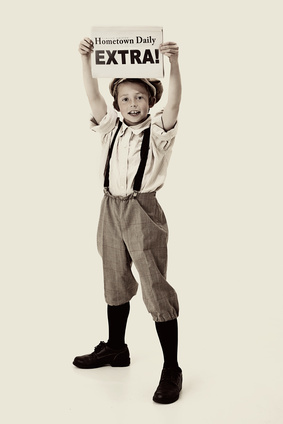In the Getting Ready to Write and Authentic Ancestors workbooks, I mentioned historical timelines and their importance in organizing your research and writing your ancestor’s stories. Not only is it important to map your ancestor’s life on a timeline, but also to map world, regional and local history. It’s necessary to consider what was happening in the world around your ancestors and it’s relationship to their life.
I want to spend a few minutes today discussing how we can use historical events to enrich your stories.
Historical events can provide both a background and a setting for your story. However, while these events can add a lot of colour and depth to your story, it’s important to not just insert a historical event in your ancestor’s narrative only because it happened during their life. It’s important to look at how those events may have impacted your ancestor’s life, actions, and reactions. While some events will be easy to include due to your ancestor’s direct relationship to an event, do not discount an event because it did not happen directly to them. It may be happening in the background and influencing their life.
These historical events can happen before, after or during the story. It may be something from the past that sets in motion a current event in your story. Historical events can add richness to your story and can place your ancestor’s life and story within the context of the world. It can also help to establish the tone of your story for your reader. By linking your ancestor’s story to something happening or that has happened, this event may impact them or people around them. It’s important to consider how the event may change their feelings, attitudes, culture, or society.
These historical events may strengthen your story ideas and feed your ancestor’s stories. Perhaps your ancestor’s story will be a political or social statement about abortion, adoption, slavery, corruption in politics or the environment to name but a few. You can look to historical events to help you build your story ideas and theme.
An excellent resource for looking at events in a variety of categories is The Timetables of History by Bernard Grun. This book is organized into seven categories, history and politics, literature and theatre, religion, philosophy and learning, visual arts, music, science, technology and growth, and daily life. It spans from 5000BC up to 1991 and is organized on a year by year basis.
I’ve also provided you with a small chart below for you to download and use if looking at the historical events of your ancestor’s life and analyzing them for the impact on their lives. Completing this chart might help you to shape your story with regards to plot, theme, and your story question.
Don’t limit yourself to just the large world events. Regional and local historical events must also be considered. We often think wars and national tragedies when discussing historical events. However, a local storm that causes devastation to area crops or local politics may play a significant role in your ancestor’s life and decisions.
Historical events provide context and richness to your story, and it places our ancestor in the world making them more real and believable to your reader.
Here’s the timeline with a couple of examples filled in.
